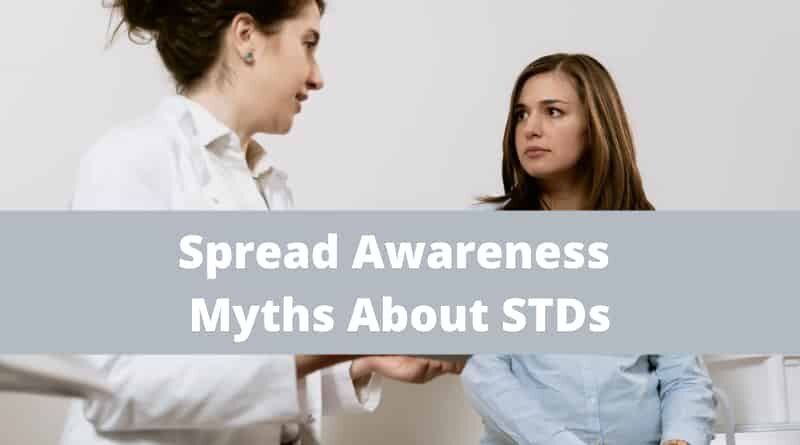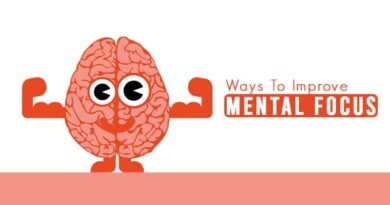Ways to Spread Awareness and Eliminate Myths About STDs
Sexually transmitted diseases can affect anyone at any time. Despite protection being available in the market, STDs are thriving due to a lack of proper awareness. There is much stigma surrounding STDs. Schools may help people understand these diseases superficially, but the knowledge is not enough. It also doesn’t help that there are so many myths floating around these infectious diseases. Fortunately, physicians are in place to help understand what they’re up against and how to protect themselves from getting them. Doctors also have an accurate understanding of what these diseases entail and details on them. Educating is essential in learning about STDs. Here’s how healthcare providers can spread awareness and deal with myths:
Table of Contents
Spread Awareness and Eliminate Myths About STDs
Teach About STDs
Start by talking about STDs. You can provide resources such as videos and even website links on what they look like and what they’re called. The next step is talking about what parts of the body they impact and the symptoms. Make sure the language is concise and steers clear from telling stories. You want to provide factual information. You should debunk any information beyond the one you feed. Your information should also include possible treatment routes and how an individual’s lifestyle is impacted.
Read: Steps to Ensure Women’s Health
Get Involved In The Public Sector
The public sector deals with STDs, and there is plenty of information available online on how much and how often the population is impacted by it. Once you start working with public health professionals, start paying attention to trends. If you notice that STDs are prevalent in teens, you need to talk to schools and parents. If it’s common in adults, encourage them to see doctors. Find out what methods of contraceptives are popular and what misconceptions are people harboring.
Moreover, there is a rise in the online registration of courses as it allows flexibility to balance work, life, and higher education. Hence, medical experts and professionals prefer enrolling in online MPH programs to hone their skills which helps them further impact society.
Talk About Common Myths
People are willing to give the benefit of the doubt about STDs. They assume the situation isn’t as bad as the healthcare sector makes it to be. However, that’s not the case. STDs are very serious, and unless they’re treated, they can become very dangerous. Some of the common myths include that if you catch an STD once, you never catch it again. That’s not the case. STD has no immunity, and you can catch one again after you recover. Not all forms of contraceptives are effective, and only mechanical barriers like condoms can protect you. Another popular myth is the belief that public toilets carry STDs. That’s not true. Viruses need a host cell to survive. Outside the human body, they cannot live and so cannot thrive. It is essential to put these myths to rest since misinformation can cause people to make wrong decisions. If people value myth over scientific facts, then that is a problem.
Read: Common Health Issues You Shouldn’t Neglect
Visit A Doctor For Regular Screening
It would help if you encouraged teenagers and adults to get screened for STDs. There is no shame in a doctor’s visit. It is always a good idea to catch the disease early before it progresses. Any illnesses that escalate to later stages can get more painful to deal with. It also becomes challenging to find the proper treatment if the disease has escalated. Doctors can also provide helpful information on STDs. They can guide a teenager in a more age-appropriate manner without shaming or making them feel embarrassed. They can also talk to adults about what they need to do to stay protected and how often they should get tested.
Get Treated For Substance Abuse
Substances such as drug abuse can cause promiscuity. Apart from substances taking away a person’s ability to think and feel, some have aphrodisiac qualities in them. Under a drug-induced stupor, it is challenging to stay safe. It is hard to be rational when you don’t know what you’re doing. So to take charge of your health, you need to take in all the elements that control it. If you need to use drugs such as prescription pills, make sure you do it in a controlled manner. If you’re addicted, you need to check into rehab. When you take away your brain’s ability to rationalize, you endanger your health in more than one way. Addiction can also start at any age, so whether it’s a teen or an adult, both need proper help.
Read: Home Remedies for Yeast Infection
Get Vaccinated
Some STDs have vaccines. These are viruses that can get treated right away. Bacterial STDs have a different route of treatment which includes antibiotics. HPV has a vaccine for it. The virus comes in 100 different strains, and unless it gets treated right away, it can cause serious issues. One of which is cervical cancer.
Hepatitis A is another virus that can cause an STD. The vaccine for Hep A is two shots administered six months apart. So if you have signs and symptoms of Hep A, you need to get vaccinated right away. Hepatitis B is another virus that you can get vaccinated against. The virus is also transferred through body fluids. The vaccine is administered in a series of two, three, and four injections. Other vaccines are still on a trail route. So while they’re being worked on, talk to a doctor on different ways to stay safe.
Read: The Difference Between PrEP and PEP
Wrap Up
STDs are part of the infectious disease that are present in society. Teenagers and adults alike need to stay aware of these contagious diseases. Only through awareness can the population stay safe and seek timely help. Start by providing accurate information about these diseases. Encourage people to get treated and provide relevant data on the common occurrence of STDs. Myths also need acknowledgment. If people don’t strengthen their knowledge of how these pathogens spread, they’ll make bad decisions. It is also essential to find out the factors that drive you towards intimacy and ultimately catching a disease. When you have all your information in order, you’ll have no trouble staying safe.





